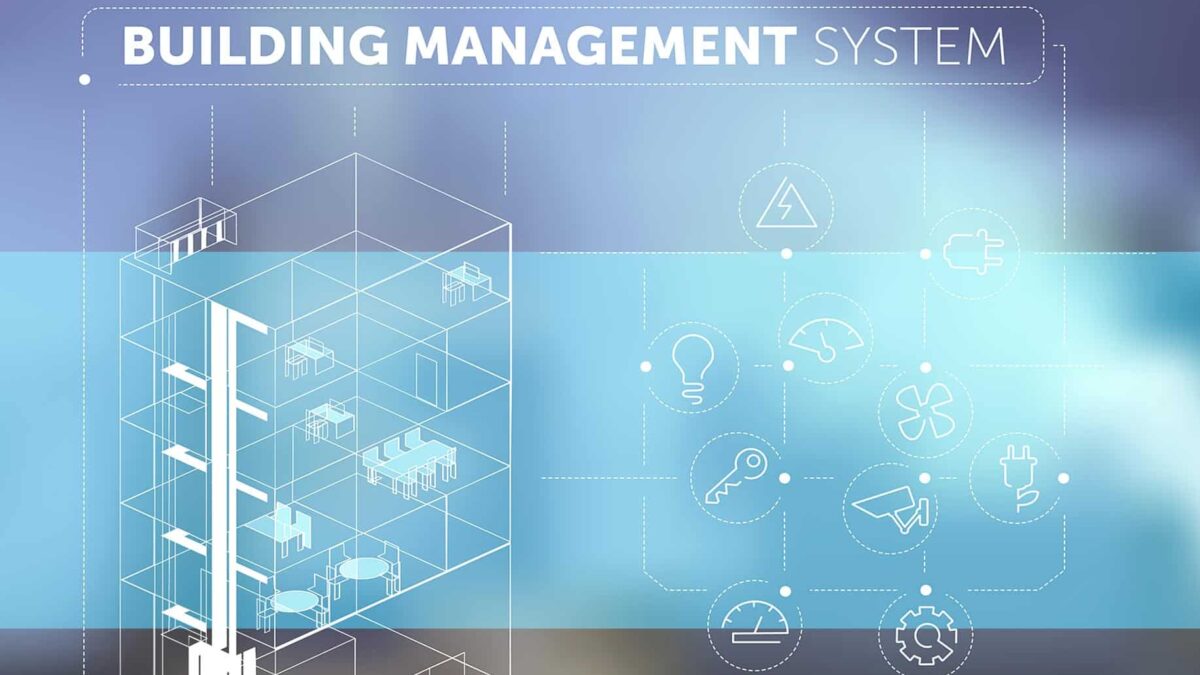Building Management Systems – Internet of Things (IoT) technology is becoming increasingly relevant in today’s world, offering new and innovative solutions to a wide range of industries and applications. The building automation industry is no exception!
The relevance of IoT in the building management system (BMS) lies in its ability to transform traditional BMS into smart, data-driven systems that provide improved performance, increased efficiency, and a better experience for occupants. In addition, it automates and optimizes various building functions and processes, including lighting, heating, cooling, security, and maintenance.
IoT And Building Management Systems
The integration of IoT technology with BMS is transforming the way buildings are managed and operated today. From smart sensors that monitor temperature, occupancy, and energy usage, to lighting and HVAC systems that can be remotely controlled and adjusted, IoT takes building automation to a whole new level. Not just this, it also provides real-time monitoring and control of building systems.
The building management industry is undergoing a major transformation as a result of the integration of IoT and BMS. In addition to improving building performance, increasing operational efficiency, and providing better occupant experiences, the Internet of Things (IoT) offers a wide range of cutting-edge and innovative solutions. As the IoT continues to grow, its potential to improve building management systems also continues to grow.
Benefits of IoT in Building Management Systems
The Internet of Things plays a major role in BMS by providing advanced capabilities for various building systems and processes. Let’s understand the benefits of IoT in BMS in detail:
- Improved energy efficiency: IoT comes with smart sensors and lighting systems that allow facility managers to monitor and optimize energy usage in buildings, reducing waste and costs.
- Real-time monitoring and control: It has maintenance and problem-solving capabilities that enable facility managers to monitor and control various building systems in real time.
- Enhanced occupant comfort: IoT devices such as smart thermostats, lighting, and HVAC systems can provide occupants with a comfortable and customizable environment.
- Increased building safety and security: The Internet of Things (IoT) does have the ability to improve building safety and security by providing real-time monitoring and control of access, fire, and security systems.
- Predictive maintenance: The smart sensors and devices of IoT can collect and analyze data from building systems, allowing facility managers to predict and prevent maintenance issues before they turn massive.
- Increased operational efficiency of a building: IoT automates various building functions and processes that ultimately reduce manual labor and increase operational efficiency.
- Better data management: The best thing about IoT is it provides a wealth of data about building operations and usage. It paves way for informed decisions and improved building performance.
- Cost savings: IoT and BMS integration can reduce energy waste, improve operational efficiency, and reduce maintenance costs for building owners.
The benefits of IoT in building automation are huge! It is time that industries should realize its importance and incorporate this technology into their building systems.
How can facilities leverage IoT in BMS?
The correct implementation of IoT in BMS also matters! Therefore, facilities should follow these steps:
- Develop a clear strategy
- Invest in quality IoT devices and systems
- Implement strong security measures
- Use data for informed decision making
- Regularly evaluate and refine IoT systems
By following these measures, industries will be able to make the most out of the Internet of Things (IoT) in their BMS.
IoT in BMS: The Journey Ahead
With real-time monitoring, control, and optimization capabilities, IoT has already significantly impacted BMS. IoT is set to revolutionize building management systems (BMS) in the near future.
As IoT technology continues to advance, we can expect to see even more innovation in the field of BMS. It includes the development of edge computing and 5G networks that will facilitate more reliable and faster IoT systems, the integration of AI and machine learning technologies for data-driven decision-making, and much more.
The future of IoT in BMS is very bright, with new and innovative solutions to improve building performance, increase operational efficiency, and provide occupants with a better experience. In the future, IoT technology will only continue to advance, leading to more potential for its impact on and improvement of building management systems.


